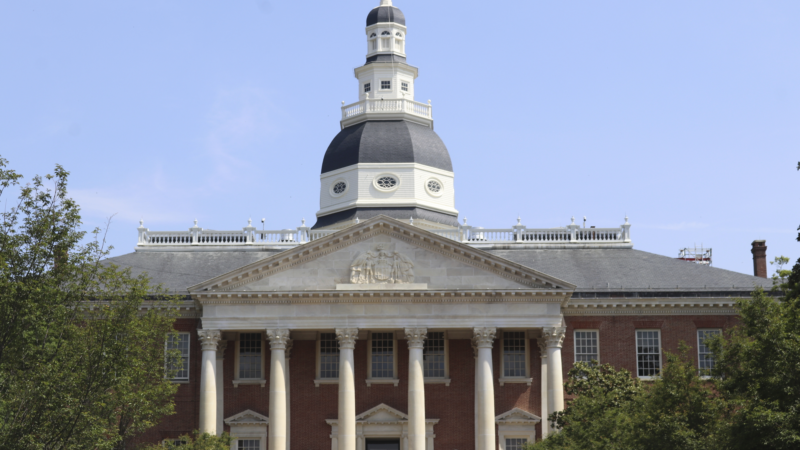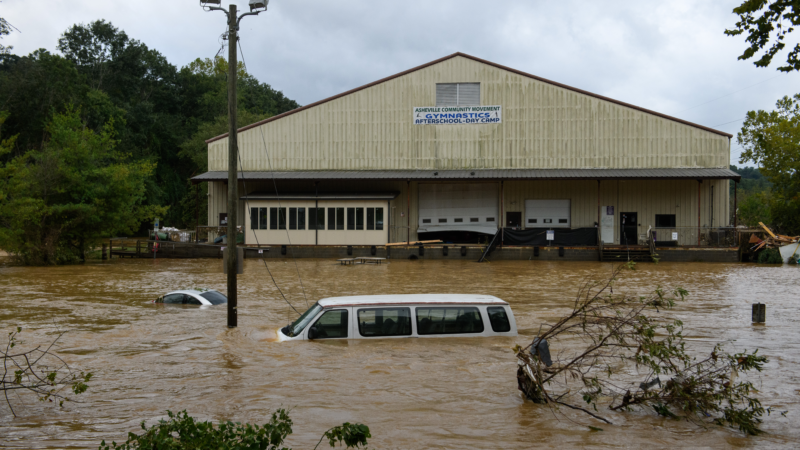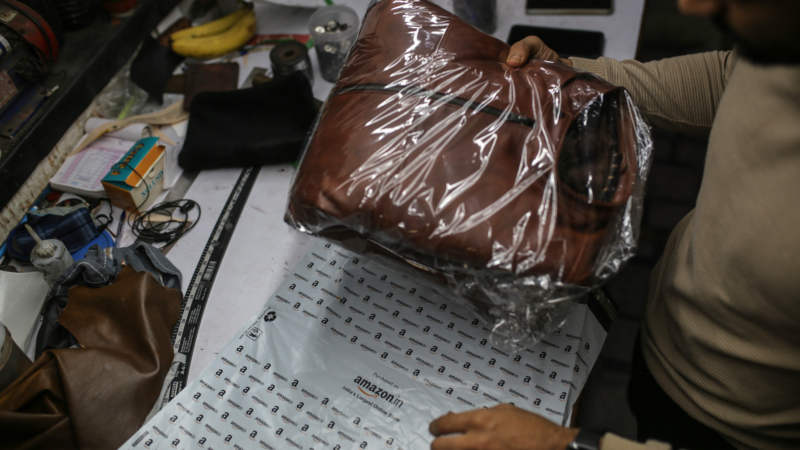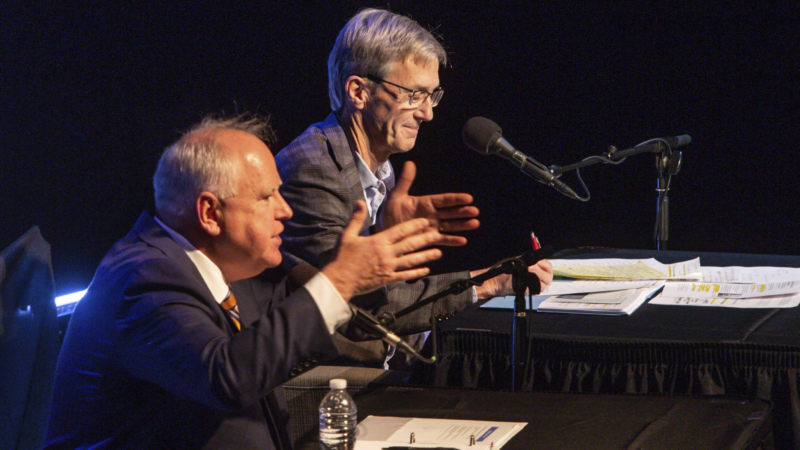Maryland seemed poised this year to legalize medical aid in dying. What happened?
For advocates of medical aid in dying, it seemed like the political stars were finally aligning in Maryland.
Many predicted the legislature had enough votes in the 2024 session to finally legalize the practice, after years of failed attempts and near misses.
State Senate President Bill Ferguson felt like the bill had a good chance.
“I believe it will pass the Senate,” Ferguson said in January, at the start of the legislative session. “I expect it to be a topic of important conversation this year.”
Most Americans support it, but it’s still legal in just 10 states and D.C.
In the most recent survey, 74% of Americans believe terminal patients should have the right to painlessly end their lives. A majority of Americans have supported that right in every Gallup poll since 1996.
Oregon first legalized the practice in 1994. Since then nine other states and the District of Columbia have followed suit with similar laws.
Technically, medical aid in dying is “the act of prescribing lethal medications to a consenting patient who can self-ingest them with the intent of hastening their death,” according to the Journal of the Advanced Practitioner in Oncology. (Most patients who have used the process have cancer.)
The current state laws lay down similar regulatory guardrails to ensure a patient are making an informed, voluntary decision and are mentally competent to oversee their own medical care.
For example, the Maryland bill required the patient to navigate multiple requests and waiting periods before obtaining the legal medications. The patient must have a prognosis of six months or less to live, and must be physically able to take the medication themselves.
In Maryland, a 2024 poll found 70% of Marylanders support medical aid in dying.
In 2019, a Maryland bill stalled after a tie vote. In 2024, the opportunity seemed ripe for supporters and allied legislators to try again.
Was this the year?
Support or opposition to medical aid in dying does not always break along traditional partisan lines. Still, the practice does tend to garner more support from Democrats.
In Maryland, Democrats hold a comfortable majority in both houses of the General Assembly. In 2022, a Democrat, Wes Moore, won the governorship after eight years under Republican Larry Hogan. Moore had indicated he’d sign a bill, if it made it to his desk.
“I think there is a slight partisan element to it,” said Peg Sandeen, the CEO of Death with Dignity, an organization that advocates for medical aid in dying. “But, that’s not the dominant breakdown here of the vote. We will have Republicans who are voting for this bill in the end, and some Democrats who vote against it.”
In the end, the bill failed by a single vote. The failure shows how controversial medical aid in dying remains, and how Democrats are by no means united around the issue.
Why the Maryland bill failed, again
Although party affiliation plays a role, cultural and religious beliefs can split and fragment the vote on this issue.
“The Catholics are very much against the bill. Also, a lot of the African Americans don’t like it. It seems they feel it’s against their religion,” said Ron Young, a former Democratic state senator, who had previously sponsored and supported medical aid in dying bills.
“Maryland is progressive, but it’s also very diverse,” said Donna Smith, an advocate with Compassion and Choices, which lobbies for aid in dying. “The African American legislators represent about 30% of the legislators in Maryland. And so it’s very hard to get anything passed without some of their support.”
The Black community in Maryland is a formidable voting bloc and one that legislators listen to closely, according to former state senator Ron Young. And a large percentage of Black voters oppose medical aid in dying, Young said.
According to the U.S. Census Bureau, Maryland is 32% Black, making it the state with the sixth highest Black population in the nation.
While the Black community isn’t a monolith, there are enough who balk at the idea of medical aid in dying.
“I’m a Baptist. I don’t believe in people killing themselves. Number one rule,” said Reggie Carter, a Black voter in Maryland.
But other Black voters are open to the idea. Gee Blue, who is Muslim, said he had complicated feelings about the issue.
“It does go against a lot of religion, but I feel like personal choice is beyond religion sometimes,” Blue said.
Democrats walk a delicate line
State Senator Malcom Augustine, a Democrat, represents Prince George’s County, which has the highest Black population in Maryland. He voted against the bill in 2019 and continues to oppose it.
“What I was hearing from constituents was that this was a very, very personal and very difficult policy decision,” he said.
Augustine said his concerns are based in fears that nursing homes might coerce people into making a decision they hadn’t thought through.
Then, there is the Catholic Church, an entity that has fought for what it calls the “sanctity of life.”
“There’s people with a lot of money and a lot of power that oppose it,” said Thaddeus Pope, a clinical ethicist at the Mitchell Hamline School of Law in Saint Paul, Minnesota.
“Traditionally, the Catholic Church has been one of the biggest opponents. And, they have spent a lot of money in many states opposing this. It’s sort of the same parties that are involved with abortion. It’s not just the Catholic Church, but it’s pro-life advocacy organizations.”
Pope added that after the Supreme Court’s Dobbs decision, which overturned Roe v. Wade, some of those organizations had more time and resources available to lobby against medical aid in dying.
Narrow paths to passage
Political observers and advocates agree that Maryland has a patchwork of cultures and constituencies that legislators still must cater to in their local districts.
Given those nuances, a few “no” votes can block any piece of legislation, despite the legislators’ shared party affiliation.
“The thing about the legislative process is there’s so many little gates a bill has to pass through,” Pope said. “The opposition doesn’t need all the votes, they just need to be able to block any one of those gates that it needs to pass through and they win.”
In Maryland, the gate shut in the General Assembly when one senator changed her mind.
In neighboring Delaware, which also has a majority Democratic government, a similar aid in dying bill passed the Delaware House and then squeaked through the state Senate with an 11-10 vote on June 25.
But on Sept. 20, Delaware Governor John Carney vetoed it. Carney, a Catholic, said he is “fundamentally and morally opposed to state law enabling someone, even under tragic and painful circumstances, to take their own life.”
Supporters in both states say they’ll keep talking and lobbying, hoping that both voters and their representatives gradually become more comfortable with the issue.
This story comes from NPR’s health reporting partnership with WYPR and KFF Health News.
Historic flooding strands hundreds in North Carolina. And, Hezbollah leader mourned
Tropical storm Helene has left western North Carolina with catastrophic damage from historic flooding to a loss of power for thousands. And, Lebanon mourning the loss of Hezbollah leader.
Helene death toll rises to over 90 as millions remain without power
At least 91 people across several states were killed. Officials warned that rebuilding from the widespread loss of homes and property would be lengthy and difficult.
An NPR investigation: A murder in Hebron
Was the murder of a young Palestinian man in the West Bank an anti-gay hate crime? NPR identifies the accused killer and explores the parallel systems of justice that have yet to resolve this case.
Amazon India workers say they’re overworked and mistreated during a brutal heat wave
Amazon India says it ensures breaks and worker safety, but workers tell NPR they're pressured not to stop for water or to use the toilet, especially while processing same-day orders.
Vance and Walz debate in New York City on Tuesday. Here’s what you need to know
The CBS News vice presidential debate will be the only time Ohio Sen. JD Vance and Minnesota Gov. Tim Walz get to face off ahead of the 2024 election. Here's what to expect.
What Tim Walz’s past debate performances reveal about how he may take on JD Vance
Those who’ve debated Walz before say he has a down-to-earth style that is relatable to voters — but it's an approach that can also cause problems for the Democratic vice presidential nominee.






